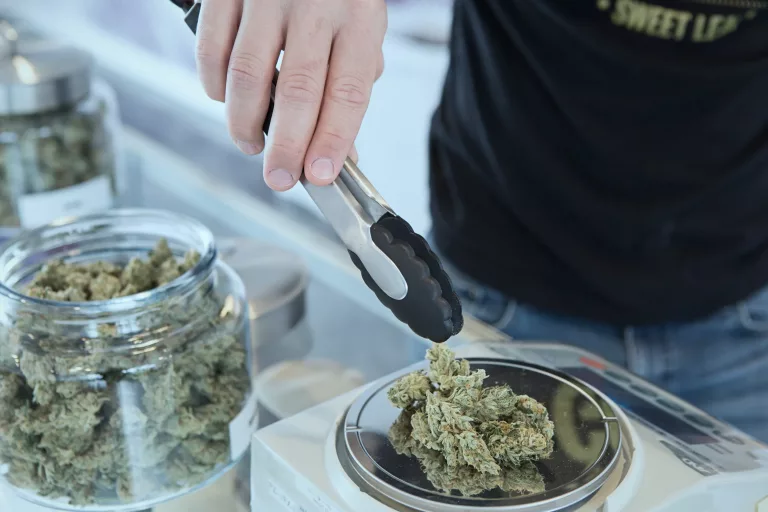Embracing the Green Revolution: Quitting Alcohol and Supplementing with THC
Introduction
The adverse effects of excessive alcohol consumption on both physical and mental health are well-documented. In recent years, many people have been exploring alternative substances to replace alcohol, seeking healthier and more sustainable options. One such alternative is tetrahydrocannabinol (THC), the primary psychoactive compound found in cannabis plants. As the hemp industry evolves and the public’s understanding of the potential benefits of THC expands, it is essential to evaluate the advantages of quitting alcohol and supplementing with this compound. This article will discuss the health, social, and benefits of making this switch.
Health Benefits
- Improved Liver Health: Alcohol consumption can lead to liver damage, including fatty liver disease, alcoholic hepatitis, and cirrhosis. By quitting alcohol and supplementing with THC, individuals can reduce the risk of liver diseases and allow the liver to heal and regenerate over time.
- Reduced Risk of Cancer: Alcohol consumption has been linked to various types of cancer, including breast, liver, and throat cancer. By replacing alcohol with THC, one can potentially decrease the risk of developing these cancers.
- Better Mental Health: Alcohol is a depressant and can contribute to anxiety and depression. On the other hand, THC has been shown to have potential therapeutic benefits for anxiety and depression when used appropriately and in moderation.
- Weight Management: Alcohol is high in empty calories, which can lead to weight gain. THC is not calorically dense, making it a better option for those looking to manage their weight.
- Improved Sleep: Alcohol can disrupt sleep patterns and negatively impact sleep quality. THC, when used appropriately, has been shown to promote relaxation and improve sleep quality.
Social Benefits
- Enhanced Social Interactions: Unlike alcohol, which can impair cognitive function and coordination, THC can foster a sense of connection and empathy, leading to more meaningful and genuine social interactions.
- Reduced Violence: Alcohol consumption has been linked to an increase in aggression and violent behavior. In contrast, THC tends to promote relaxation and reduce the likelihood of aggressive behavior.
- Lower Healthcare Costs: By reducing alcohol-related diseases and accidents, quitting alcohol and supplementing with THC can contribute to lower healthcare costs, easing the financial burden on individuals and the healthcare system.
Deaths contributed to alcohol:
- According to the World Health Organization (WHO), harmful use of alcohol results in approximately 3 million deaths each year, which represents 5.3% of all deaths worldwide.
- In the United States, the Centers for Disease Control and Prevention (CDC) reported that there were 95,000 alcohol-attributable deaths annually from 2011 to 2015. These deaths include both acute causes, such as alcohol poisoning or traffic accidents, and chronic causes, like liver disease or cancer.
- As for drinking and driving specifically, the National Highway Traffic Safety Administration (NHTSA) in the United States reported that in 2019, there were 10,142 alcohol-impaired driving fatalities, accounting for 28% of all traffic-related deaths in the country.
It is important to note that these figures can change over time, and regional differences may exist. Nonetheless, these statistics emphasize the significant public health concerns related to alcohol consumption and drinking and driving.
Conclusion
Quitting alcohol and supplementing with THC offers various health, social, and environmental benefits. From improved liver health and mental well-being to more meaningful social interactions and reduced environmental impact, the advantages of this switch are worth considering. However, it is essential to consult with a healthcare professional before making significant changes to your lifestyle and substance use, as THC may not be suitable for everyone. As the hemp industry continues to develop, it is essential to stay informed about the potential benefits and risks of THC and other cannabis-derived products.
Look up some research studies:
- Rehm, J., Gmel, G. E., Sr., Gmel, G., Hasan, O. S. M., Imtiaz, S., Popova, S., … & Shuper, P. A. (2017). The relationship between different dimensions of alcohol use and the burden of disease—an update. Addiction, 112(6), 968-1001.
- This study explores the link between alcohol use and disease burden, emphasizing the negative health impacts of alcohol consumption.
- Volkow, N. D., Baler, R. D., Compton, W. M., & Weiss, S. R. (2014). Adverse health effects of marijuana use. New England Journal of Medicine, 370(23), 2219-2227.
- This review article discusses the potential adverse health effects of marijuana use, highlighting the importance of considering both the benefits and risks of THC supplementation.
- Lachenmeier, D. W., & Rehm, J. (2015). Comparative risk assessment of alcohol, tobacco, cannabis and other illicit drugs using the margin of exposure approach. Scientific reports, 5(1), 1-6.
- This study compares the risks of different substances, including alcohol and cannabis, using the margin of exposure approach.
- Turna, J., Patterson, B., & Van Ameringen, M. (2017). Is cannabis treatment for anxiety, mood, and related disorders ready for prime time?. Depression and anxiety, 34(11), 1006-1017.
- This review examines the potential therapeutic benefits of cannabis for anxiety and mood disorders, which may be relevant when considering replacing alcohol with THC.
- Babson, K. A., Sottile, J., & Morabito, D. (2017). Cannabis, cannabinoids, and sleep: a review of the literature. Current Psychiatry Reports, 19(4), 23.
- This review article explores the relationship between cannabis, cannabinoids (including THC), and sleep, which may be relevant when discussing the benefits of quitting alcohol and supplementing with THC.





